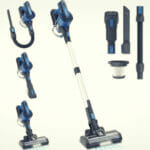Privacy Tools: How to Build Better Passwords
by Julia Angwin ProPublica, Jan. 21, 2014, 10:19 a.m.
In the course of writing my book, Dragnet Nation, I tried various strategies to protect my privacy. In this series of blog posts, I try to distill the lessons from my privacy experiments into a series of useful tips for readers.
Passwords are the first line of defense between your private data and an attacker 2013 whether it is a criminal hacker or a spy agency.
But most of the conventional wisdom about building passwords is terrible. People are often told they should change their passwords every three months; that their passwords should be made strong with multiple symbols and letters; and the passwords should not be written down anywhere.
Computer scientist Ross Anderson has summed up this terrible advice as “Choose a password you can’t remember, and don’t write it down.” Faced with that impossible task, most people use passwords that are easy to remember 2013 the most popular password is still 123456 2013 and use it for every single account.
It’s actually better advice to choose a more secure password and write it down somewhere in a safe place. After all, it’s much less likely that someone will break into your house and steal your master password list than it is that someone will hack into your account from afar through a weak password.
However, even if you write down your passwords, you still face the difficult task of dreaming up the dozens of passwords that seem to be required for modern life. At first, I tried to make up my own passwords, but after I stumbled on this password-strength estimator, I realized that many of my homegrown passwords were still easy to crack. So, after much searching for a perfect password strategy, I came up with a two-tiered solution for building strong passwords:
- For less important passwords 2013 such as for my frequent flier and online shopping accounts 2013 I used password management software called 1Password to generate and store passwords. Like its competitors, LastPass and KeePass, 1Password generates strong passwords from strings of letters, numbers and symbols and stores them on my machine in an encrypted file.
- For more important passwords 2013 such as the password to my 1Password vault, my e-mail and online bank accounts 2013 I used a simple, low-tech passphrase-generating system called Diceware. It works like this: roll a six-sided die five times, then take the numbers you roll and match them up to the Diceware word list, which contains 7,776 short words. This will give you a five-word passphrase that is hard for attackers to crack, but easy to remember.
This XKCD comic nicely sums up the beauty of the Diceware approach.











